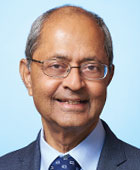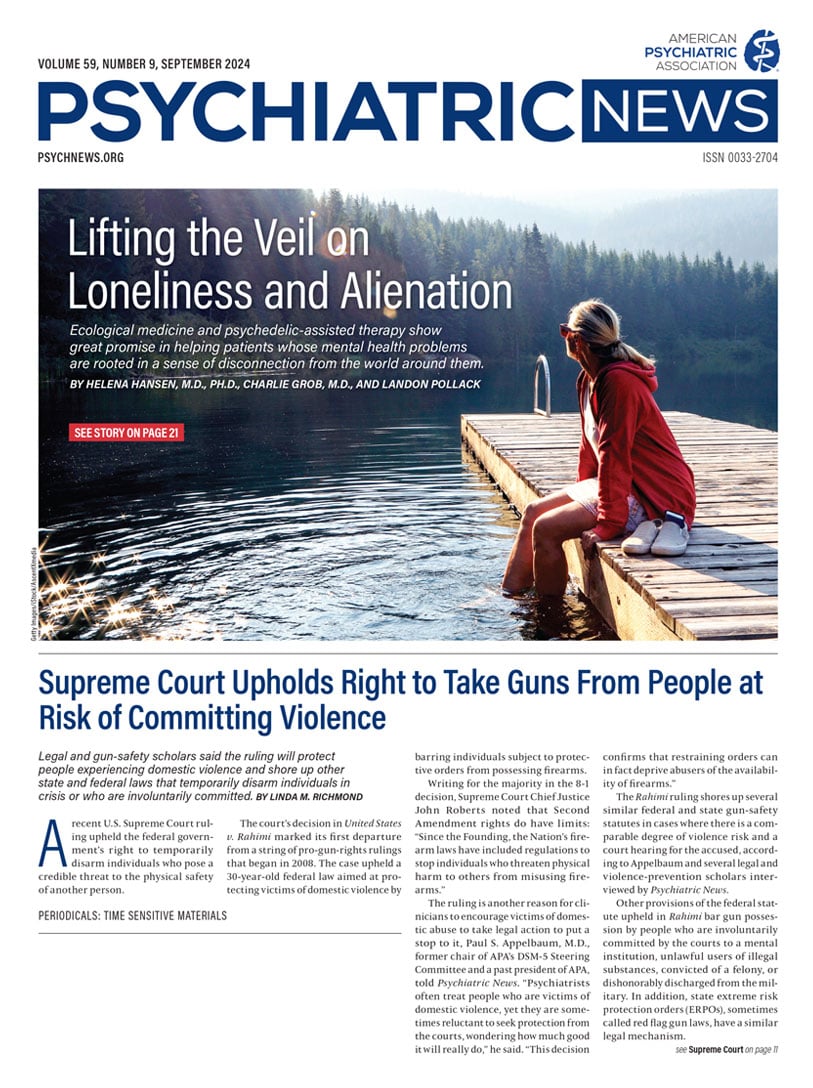My presidential theme is “Lifestyle for Positive Mental and Physical Health.” In this column, I would like to briefly discuss the “Positive Mental Health” aspect of this theme. Traditionally many people work toward amelioration of symptoms. While this is important, we should also pay attention to the strengths of individuals and help them to utilize them—and, where indicated, work toward changing socioeconomic and environmental conditions to promote fitness, social connectedness, and self-fulfillment.
Through psychotherapy, we can change the orientation of the individual from a sense of helplessness to a sense of agency. Going beyond that, we can help people adopt a challenge orientation, encouraging them to deliberately confront situations that they tend to avoid but are within their scope of mastery. Exposure therapy, the cornerstone of overcoming phobic anxiety, for example, owes its success not only to habituation; from an existential point of view, if one is encouraged to actively seek and confront avoided situations, it changes the relationship between the person and the symptom or situation, giving the person more sense of control.
Anxiety avoidance is very prevalent in our patients and in ourselves, and a thoughtful confronting principle can be applied to many situations in life beyond the treatment of phobias. Examples are increasing one’s social circle, trying new activities, trying new modes of behavior, and assertiveness training. Care should be taken that each confrontation is designed to become a mastery experience and not a traumatic experience, which would require a graded approach and skills training.
A related principle is the concept of hormesis, exemplified by Friedrich Nietzsche’s aphorism “What does not kill me makes me stronger.” Mithradates VI, king of Pontus in the first century BCE, regularly ingested small amounts of various poisons to develop resistance to them, as a way of protecting himself from poisoning attempts. Fortifying oneself through engaging moderate stress is one of the principles behind the beneficial effects of immunization, physical exercise, intermittent calorie restriction, and metformin.
Not everyone becomes stronger as a result of psychosocial adversity, and psychotherapy needs to help them grow in that direction. While moderate stress can be strengthening, severe stress is pathogenic. We need social interventions to minimize harsh adverse events. I am often impressed by the resilience of many of our patients despite their having grown up with serious life events—and we should always be cognizant of their strengths.
The 1998 presidential theme of American Psychological Association President Martin Seligman, Ph.D., was “Positive Psychology.” The 2012-2013 theme of American Psychiatric Association President Dilip Jeste, M.D., was “Positive Psychiatry.” Even though positive psychology and psychiatry are known worldwide, much more can be done to implement them. In my mind, one’s attitude toward life is an important aspect of lifestyle medicine. ■

